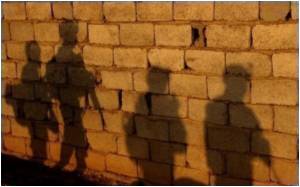Students across Japan are returning to class as the new school year starts, but along the tsunami-smashed northeast coast, many no longer have schools to go to.

But in many places, that is simply not possible.
In worst-hit Miyagi prefecture, around 80 percent of schools were destroyed or damaged by the earthquake and the devastating tsunami that followed.
Others have been transformed into emergency shelters for the tens of thousands of people whose homes were destroyed when a huge wall of water barrelled into the northern coast of Japan, all but wiping out entire towns and villages.
With many teachers dead or missing, even those that escaped relatively unscathed face challenges as Japan's famously intensive academic year gets under way.
"Delaying the start of classes means there will be fewer opportunities for schools to teach. We'll have to think up of new ways to fill the gap, such as having classes on Saturday," Miyagi education official Masato Shindo told AFP.
Advertisement
In Miyagi, 462 students are dead or missing, while scores of teachers have also been lost, said Shindo.
Advertisement
Yoshiaki Waku, the deputy headmaster at Kesennumatsuya middle school in the city, said even that short delay would make it difficult to prepare pupils for their end-of-year exams.
"I hope we can start classes again quickly, because otherwise we will face problems," he told AFP.
"We might have to have classes during the summer vacation, and I am also afraid that we will have to cancel some extra-curricular activities like sports."
The school's position on top of a hill meant it escaped relatively unscathed from the huge 9.0-magnitude and massive tsunami that followed in its wake.
All 55 students and 24 teachers survived, but some of the children lost relatives and homes, and Waku said many were still badly affected.
"It would be good to have sports classes to revive their spirits, but I don't know whether we can," said Waku, adding that the school is considering providing counselling for the students.
In the worst-affected areas, schools are having to draft in teachers from elsewhere, and authorities are looking at whether pupils can be transferred to schools less badly hit by the disaster.
Miyagi's Shindo said the disaster had dealt a "major blow" to education in the prefecture, and many parents were looking at sending their children away to stay with relatives, allowing them to attend school elsewhere.
The cost of the damage to the education system, currently estimated at 77 billion yen ($910 million) for Miyagi, is certain to rise, he said.
"Just because classes begin does not mean that schools have recovered," he said. "It will take several years just to return to conditions before the disaster."
Source-AFP








